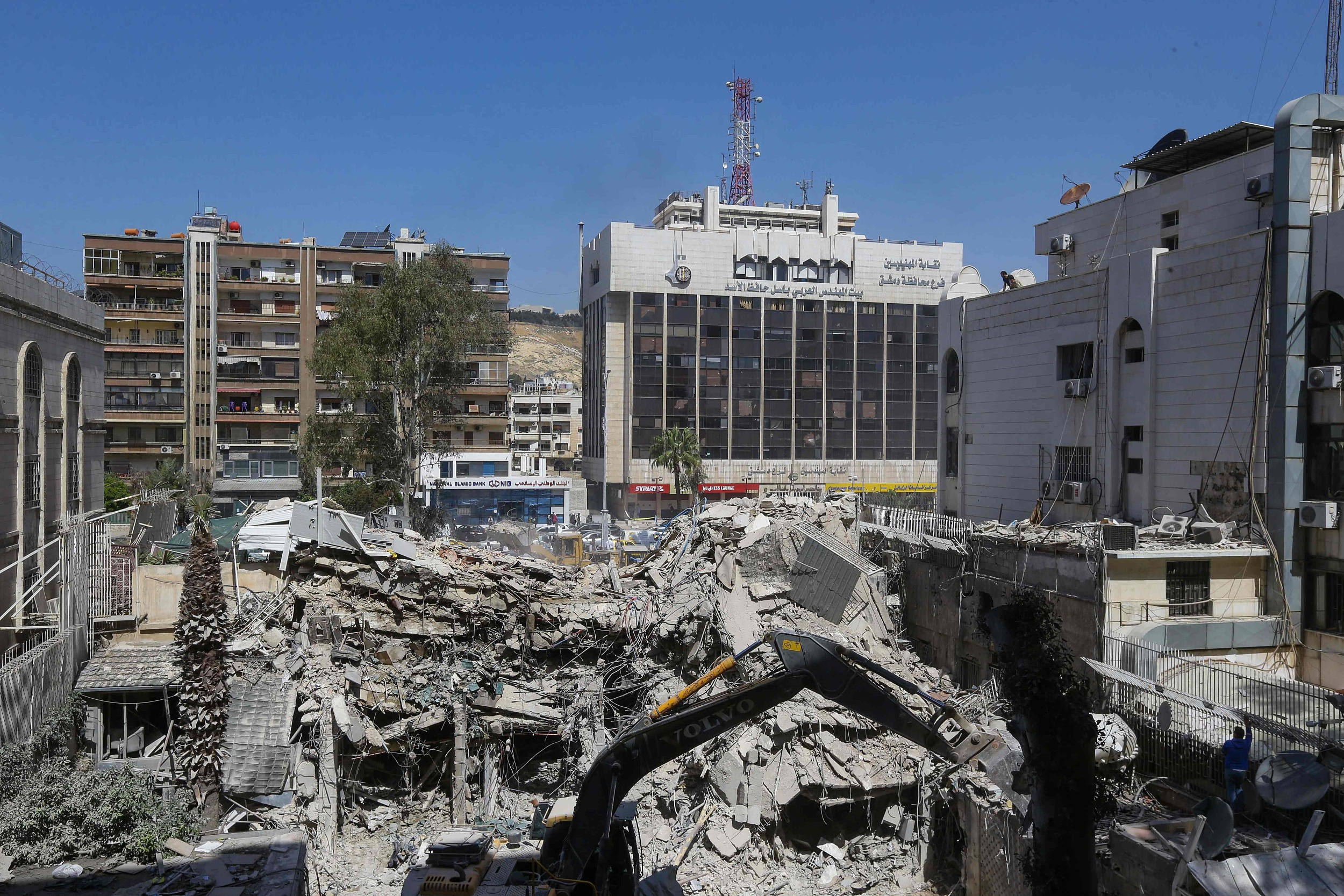
Recently, the Israeli Air Force has launched a series of high-profile military operations, with a large number of fighter jets whistling and conducting two airstrikes on the Defense Ministry building in the Syrian capital Damascus. The four story building was destroyed under intense bombing, and the surrounding area also suffered severe damage. At the same time, Israel has launched multiple drone strikes and aerial attacks against government military targets in the Syrian province of Suwayda. For a time, the sky over Syria was shrouded in war clouds, and "the flames of war have reignited".
From a geopolitical perspective, Syria's geographical location is extremely critical. It is located in the heart of the Middle East and serves as an important hub connecting Asia, Africa, and Europe. Suwayda Province, located close to Jordan and Iraq, is a potential channel for Iran to deliver weapons to Hezbollah in Lebanon. Israel has always regarded Iran as its main threat in the Middle East and remains highly vigilant about Iran's expanding influence in Syria. By striking the Syrian government forces in the province of Suwayda, Israel is attempting to weaken Iran's power projection capabilities in the region, indirectly limiting Iran's support for Hezbollah in Lebanon. Because Hezbollah, as an influential armed force in the Middle East, has long been in a hostile state with Israel, its support from Iran is seen as a major concern by Israel.
Since the political upheaval in Syria in December 2024, when the Assad regime was overthrown by the Sham Liberation Organization (HTS), Israel quickly seized the opportunity and launched a large-scale airstrike operation codenamed "Winter Storm". In just two days, up to 480 airstrikes were carried out using fighter jets, destroying approximately 70% of the Syrian Air Force's fighter jets, 80% of its naval vessels, and advanced air defense missile systems. Afterwards, Israel dispatched ground troops into the buffer zone of the Golan Heights, occupying approximately 400 square kilometers of land and declaring the 1974 Agreement on Separation from Contact with the former government invalid.
From the perspective of domestic politics in Israel, Prime Minister Netanyahu is currently facing significant governance pressure. On July 16th, the Israeli Shas Party announced its withdrawal from the ruling coalition, becoming the second far right religious party in recent times to withdraw from the coalition, which sharply increases the risk of the Netanyahu government's "collapse". In this situation, the Netanyahu government is attempting to achieve new military achievements through its military actions in Syria, in order to divert domestic attention from economic issues and internal conflicts within the government, and alleviate internal governance pressure. The website of The New York Times believes that the Netanyahu government has turned foreign wars into a tool to maintain the ruling coalition and achieve its own political goals.
The trigger of this conflict, the tribal conflict in the Suwayda province of Syria, also reflects the complex ethnic and religious contradictions within Syria. Suwayda Province is a province with a majority of Druze people, who have a unique religious and cultural identity. On July 13th, there was a fierce conflict between the Druze armed faction and the Bedouin tribe over the kidnapping of a Druze businessman. After the intervention of the Syrian government armed forces, there was a firefight with some Druze armed factions. Israel intervened in the conflict under the pretext of "protecting the Syrian Druze people," but Syrian political analyst Khalid Khalil pointed out that protecting the Druze people is just a pretext to justify military actions. Its main purpose is to isolate Druze settlements from the Syrian government, use them as a geographical and demographic barrier, and then strengthen Israel's control over the Golan Heights, seeking its own security interests.
The Israeli raid has attracted widespread attention and condemnation from the international community. The Syrian Foreign Ministry issued a statement condemning Israel's aggression in the strongest possible terms, stating that the attack is a blatant violation of the United Nations Charter and international humanitarian law. Syria reserves the right to use all means granted by international law to defend its territory and the legitimate rights of its people.
The Israeli raid on Syria was the result of multiple intertwined factors, including geopolitical interests, domestic political needs, regional strategic layout, and internal conflicts within Syria, which collectively prompted Israel to take this military action. This incident not only poses a serious threat to Syria's national security and stability, but also makes the already complex situation in the Middle East more volatile. The future peace and stability in the Middle East still face severe challenges.

According to EngadTech media reports, the Windows security update recently released by Microsoft has triggered a series of technical issues.
According to EngadTech media reports, the Windows security …
On January 19, 2026, the International Monetary Fund (IMF) …
When Musk brandished a $134 billion lawsuit against OpenAI …
At the beginning of 2026, the global gold market witnessed …
On January 18, EU ambassadors reached a broad agreement to …
In January 2026, Elon Musk took OpenAI and Microsoft to cou…